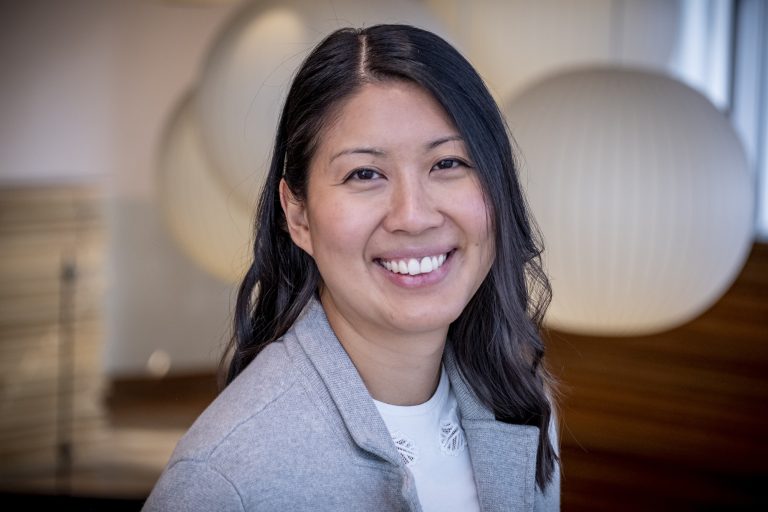Empowering Women in the Workforce: An Interview with Sabrina Tso, Advocate for Diversity, Equity, and Inclusion

By Veronica Craker
During Women’s History Month, we stop to remember the work women have done in the past so that women of today can have a place in typically male-dominated spaces. To learn more about this, we reached out to Sabrina Tso, a program manager at the Center for Diversity and Health Equity at Seattle Children’s Hospital and Washington State Opportunity Scholarship industry partner. She manages the hospital’s internal health equity grant programs and diversity initiatives for trainees, such as the Seattle Children’s Summer’s Scholars Program (SSSP), a research internship for undergraduate students. This program is what connected her with WSOS.
Tso is passionate about diversity, equity, and inclusion in the workplace. With her extensive knowledge and expertise in the field, Tso is dedicated to creating a more diverse, equitable, and inclusive work environment where everyone can thrive, especially women who have historically faced barriers to equal opportunities in the workforce.
1. Why did you want to work in healthcare?
At an early age, I was inspired by my mother. She is an immigrant from Hong Kong and was diagnosed with breast cancer when I was in high school. She used her experience and background to help form a coalition, along with three other women of color, to create the first Federally Qualified Health Center for the Asian population in Texas. I was raised with a strong value of giving back to the community and, since then, have known that I wanted to pursue a similar path of advocating for the underserved in health care, which grew into a career in health equity.
2. What interests or excites you about working to advance Diversity, Equity and Inclusion in your industry?
Working in DEI can often be disheartening, but there’s also so much potential for improvement. It’s not just DEI departments responsible for change, but everyone at every level. It’s been amazing to see that shift in recent years and everyone, including myself, is still learning so much about ways institutional structures and work environments should be more inclusive.
The work of DEI has a real impact on patients’ lives. From direct patient care to the research that’s being conducted, the healthcare industry is being forced to recognize the harm it has caused in the past and is currently causing. There is still anger and pain, but I believe there is movement in the right direction, and I’m hopeful in the momentum that’s being created.
3. What tips do you have for women in the early stages of their career?
Failing isn’t always a bad thing. Our professional society focuses so much on success that sometimes we forget that failing leads to our own personal and professional growth.
Do the hard work of reflection and gaining awareness of yourself, even if that means seeking help from a therapist or counselor. Taking care of your mental health can be so beneficial personally and professionally.
4. At WSOS, we aim to remove systematic barriers for underserved students so that they may pursue a career in STEM and health care. From your perspective, what is the importance of having women working in the sciences?
It’s important to have representation, especially in healthcare and research. Women having a seat at the table allows for advocacy for more equality in patient treatment, research participation and in professional development and training.
Tso has been partnering with WSOS since Sept 2021. If you are a professional working in STEM or health care and are interested in supporting our Scholars visit development@waopportunityscholarship.org for more information.
